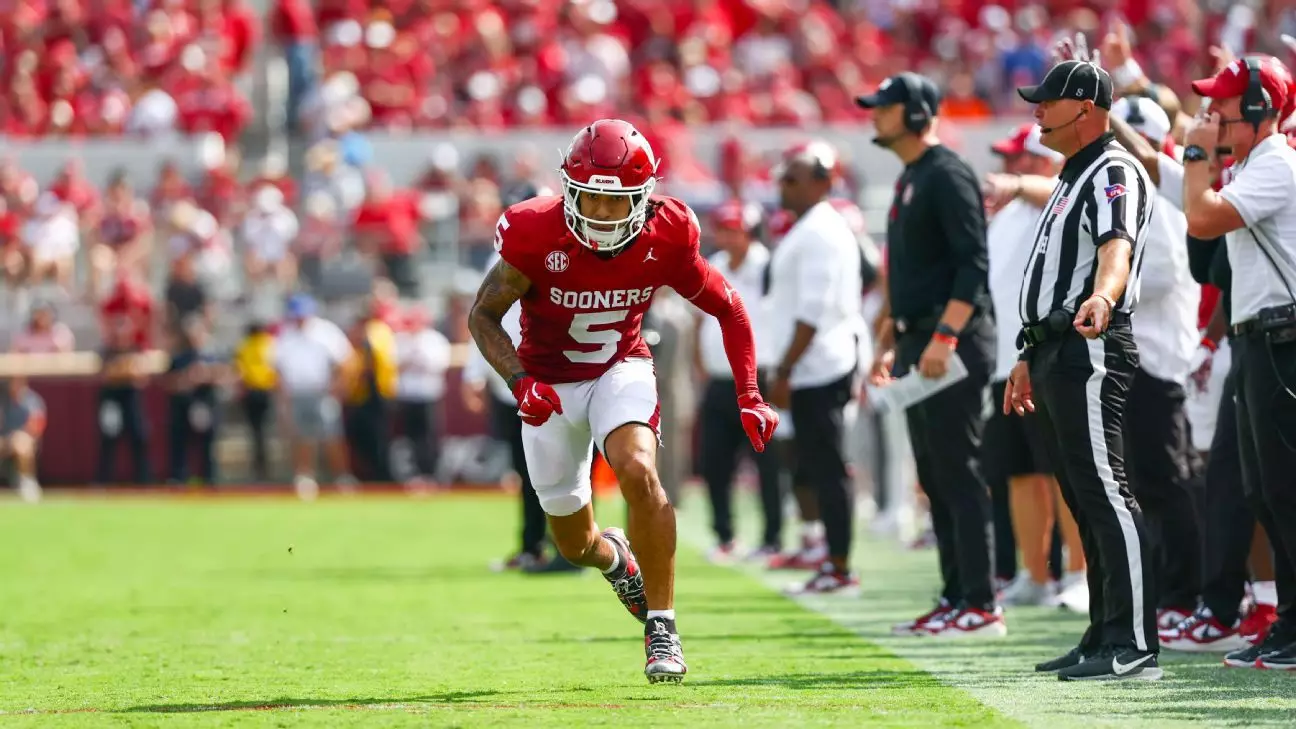The recent controversy surrounding the SEC officiating crew’s failure to identify Oklahoma’s deceptive “hideout tactic” reveals a significant and systemic flaw in the integrity of college football officiating, reflecting a broader issue of accountability, consistency, and respect for the game’s rules. While some might dismiss these errors as human lapses, the repercussions underscore a troubling pattern that jeopardizes fairness and erodes trust among teams, coaches, and fans alike.
Referees are entrusted with ensuring the game is played within the established guidelines, and their judgments uphold the sport’s integrity. When they falter—either by missing clear infractions or misinterpreting plays—they risk distorting the competitive landscape. This specific incident, involving a pre-snap maneuver meant to deceive opponents while circumventing rules against such tactics, demonstrates a lapse in both observation and enforcement. The SEC’s acknowledgment that the play should have been penalized reflects an admission that officiating, in this case, failed the fundamental principle of impartiality.
This failure is far more than a mere oversight; it signifies a failure of the system itself. The rules are in place precisely to prevent strategic deception that can unfairly advantage certain teams. When officials neglect these standards, it undermines efforts to keep the game honest, allowing teams willing to exploit loopholes to gain undue benefits. The silence that follows such misjudgments only adds fuel to the fire—does the league truly hold its officials accountable? Or are these incidents brushed aside as unavoidable errors?
The Broader Implications: Eroding Trust and Fairness
One of the most concerning aspects of this event is the reaction—or lack thereof—post-incident. Oklahoma’s offensive coordinator attempted to downplay the play as a “tempo” move, suggesting it was legal and within the bounds of the game. Conversely, Auburn’s coach Hugh Freeze emphasized that he was prepared for such deception, highlighting that pre-season instructions warned teams to expect and counteract such tactics. The differing narratives suggest a disconnect between how rules are intended and how they are enforced in practice.
The SEC’s rare public criticism of its own officials, along with promises of accountability, indicates an awareness of the damage caused by these lapses. However, words alone do little to compensate for the credibility lost when referees fail to consistently enforce rules designed to preserve fairness. Moreover, this incident echoes a prior officiating failure earlier in the season within the Big 12, emphasizing that this isn’t an isolated error but potentially indicative of deeper structural issues within college football’s oversight infrastructure.
Such recurring missteps threaten the integrity of the sport, fueling skepticism among players and fans who are increasingly losing faith in the impartiality of officials. The game’s outcome — especially in high-stakes matchups — can turn on such missed calls, which feeds into a perception of bias, favoritism, or simply inadequate officiating standards. When the game’s guardians are perceived as unreliable, the larger social trust in the sport diminishes, risking long-term damage to the sport’s reputation.
Systemic Problems and the Need for Change
The current state of officiating in college football exposes deeper systemic issues. Firstly, the training and evaluation of officials are arguably insufficient given the complexity and speed of modern play. The intricacies of deception tactics like “hideouts” require sharp, well-trained eyes—not to mention a consistent culture of accountability. Yet, the apparent failure to penalize an evident violation suggests a lack of stringent oversight or insufficient emphasis on rule enforcement.
Furthermore, the reluctance—or perhaps inability—of leagues to impose meaningful consequences for officiating errors fosters a culture where mistakes are tolerated rather than corrected. This complacency not only undermines the fairness of individual games but chips away at the very credibility of the sport’s adjudication process. Without systemic reforms, these errors will continue to tarnish the sport’s reputation, and fans may increasingly view results as influenced by officiating luck rather than legitimate competition.
Finally, the notion of accountability must extend beyond mere apologies and vague promises. Officials should be held to higher standards, with transparent review processes and tangible consequences for repeated misjudgments. Only through such reforms can the sport rebuild trust and demonstrate its commitment to fairness, integrity, and respect for the rules that are fundamental to its identity.


Leave a Reply